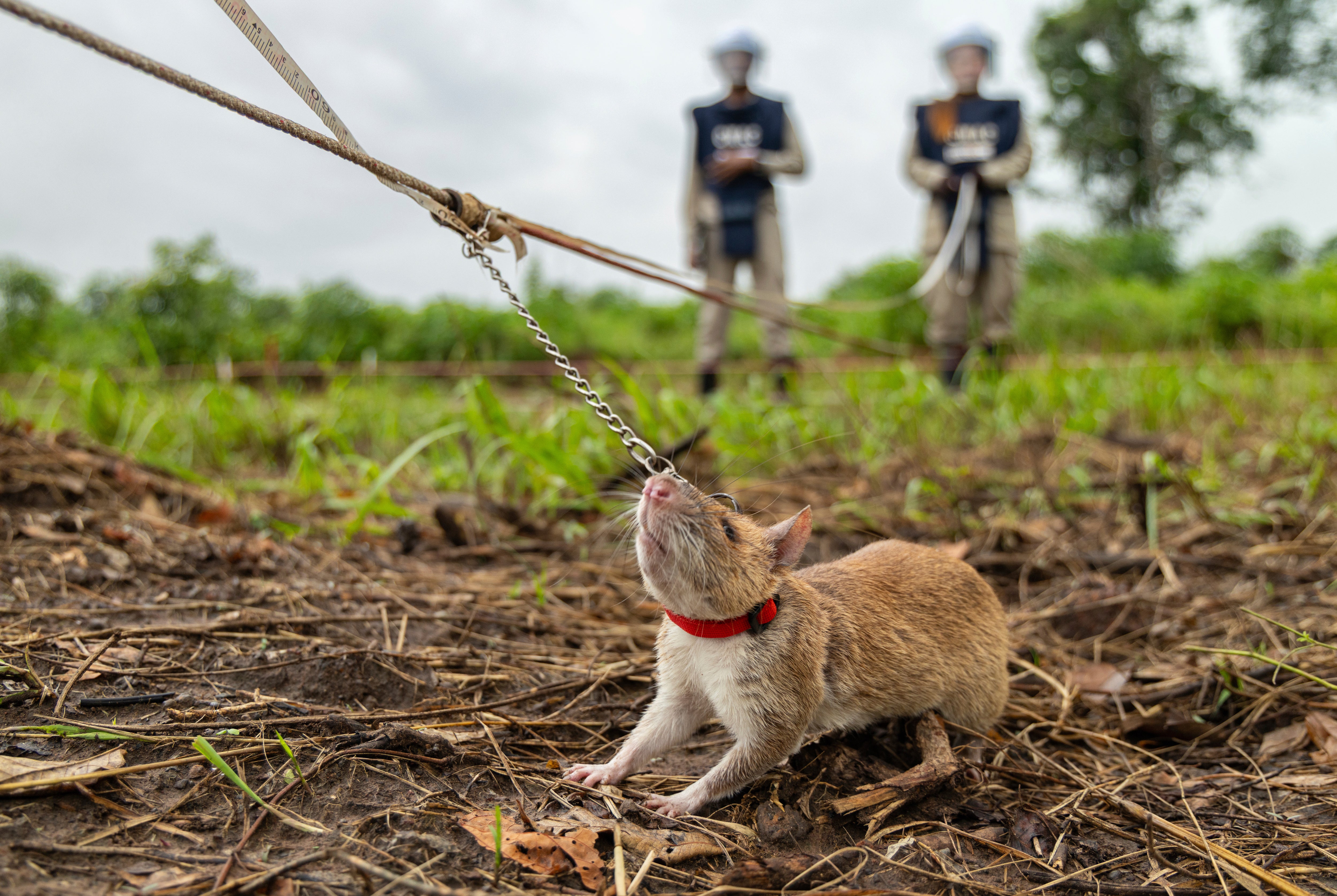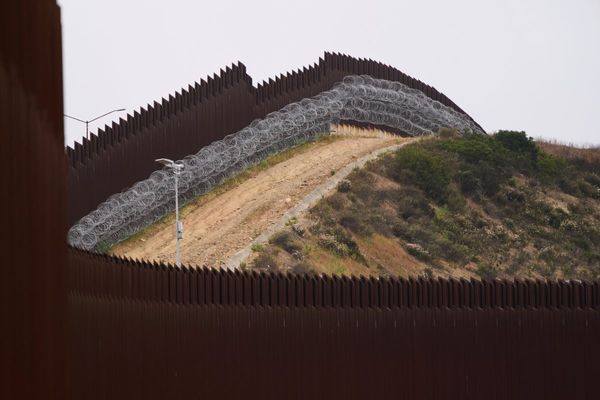While many might recoil at the sight of a rat, in Cambodia, a unique team of rodents is proving indispensable in the life-saving mission to clear landmines.
The African giant pouched rats can grow up to 45 centimetres and weigh up to 1.5 kilograms, about the size of a Chihuahua.
They are at the forefront of efforts to detect unexploded bombs that have killed and maimed thousands in the Southeast Asian nation.
Working nimbly across fields, the rats signal to their handlers when they detect the scent of TNT, a key component in most landmines.
Mott Sreymom, a rat handler with APOPO, a humanitarian demining group, attests to their effectiveness.
"While working with these rats, I have always found mines and they have never skipped a single one," she said.
"I really trust these mine detection rats."

After three decades of conflict in the previous century, remnants of war littered approximately 4,500 square kilometres (about 1,737 square miles) of Cambodian land, according to a survey by the Cambodian Mine Action and Victim Assistance Authority (CMAA) in 2004.
This affected all 25 Cambodian provinces and nearly half of the country’s 14,000 villages.
As of 2018, CMAA reported 1,970sqkm (760 square miles) remained uncleared.
The rats have a keen sense of smell, making them a favourite at APOPO, which also employs land mine-detecting dog teams.
“Dogs and rats are better compared to other animals because they are trainable,” said Alberto Zacarias, a field supervisor of APOPO’s technical survey dog teams.

He added that they are also friendly and easily learn commands.
Since demining officially began in Cambodia in 1992, more than 1.1 million mines have been cleared, as well as approximately 2.9 million other explosive remnants of war, according to a 2022 government demining progress report.
And the African giant pouched rats are doing their part.
“We work with them almost daily, so we get closer,” Ms Mott said.
“They are very friendly and they don’t move around and get scared. They are like family.”







